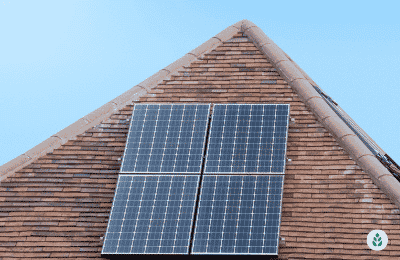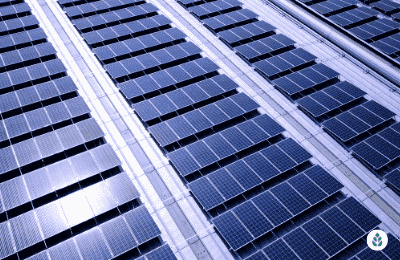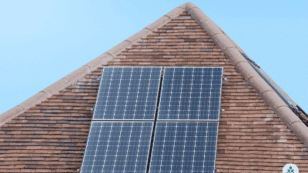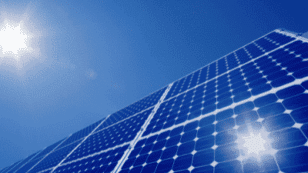
Is Solar Worth It in Tennessee? (2024 Homeowner's Guide)
Here’s a quick overview of solar viability in Tennesee:
- Tennessee ranks 27th in the country for solar installations*
- The average electricity rate is 12.33 cents per kilowatt-hour (kWh)**
- The average solar payback period is 13 years***
- Homeowners are eligible for the Green Energy Property Tax Assessment and the federal solar investment tax credit (ITC)
- The average homeowner saves $25,152 over the lifetime of their solar system***
*According to the Solar Energy Industries Association.1
**Data from the Energy Information Administration.2
***Calculated assuming the system is purchased in cash.
Each product and or company featured here has been independently selected by the writer. You can learn more about our review methodology here. If you make a purchase using the links included, we may earn commission.
Tennessee ranks 27th in the nation in terms of solar conversions, and residents pay less for electricity than homeowners in most other states. Since solar panels primarily provide savings by reducing energy bills, many Tennesseans are left wondering if installing solar panels is a good investment. For most residents, it is, but it’s important to assess your home for solar viability before committing to this renewable energy source. In this article, you’ll learn how to determine if your home is a good candidate for solar panel installation. We’ll also discuss the many benefits of solar panel installation in Tennessee and some things you should consider while you work toward getting your panels installed.
To speak with an EcoWatch-vetted professional who can help you determine whether solar is worth it for your Tennessee home, follow the links below.

Shine Solar, LLC

Regional Service
Average cost
Pros
- Many financing options
- Great warranty coverage
- Offers a panel buy-back option
- Outstanding workmanship
Cons
- Relatively young company
- Limited brands of solar equipment available

LightWave Solar

Local Service
Average cost
Pros
- NABCEP-certified technicians
- Excellent reputation
- Offers products from leading manufacturers
Cons
- No leases or PPAs
- Limited service area

Shine Solar, LLC

Regional Service
Average cost
Pros
- Many financing options
- Great warranty coverage
- Offers a panel buy-back option
- Outstanding workmanship
Cons
- Relatively young company
- Limited brands of solar equipment available
Watch Below: Learn How Much This Homeowner Paid For Solar and If It Was Worth It
How to Figure Out if Solar Panels are Worth It in Tennessee
Solar panels will save most Tennessee homeowners quite a bit of money over time, but they aren’t ideal for everyone. Below are some factors to consider that affect whether or not going solar is profitable for your home.
What’s Your Home Electricity Consumption?
First, looking at your average monthly energy consumption can be a good solar viability indicator. Since solar panels save money by reducing your energy bills, they will be more valuable for homes with higher energy usage. A standard benchmark for solar panels being profitable is at least 500 kWh of electricity used each month. The average Tennessee home uses about 1,168 kWh, which is more than double the cutoff for solar viability. As such, most homeowners will see substantial savings from going solar. Plus, energy usage in Tennessee is the second-highest in the entire country, which means installing solar will be more valuable in Tennessee than in almost every other state in terms of electricity consumption.
How Much Is It To Go Solar in Tennessee?
The price of solar panels in Tennessee is around $3.21 per watt, which is well below the national average of $3.33. This makes Tennessee the third most affordable state in the country for photovoltaic (PV) equipment, meaning your money goes further in Tennessee than in most other states. The average home in the area needs a 12-kW system to offset electric rates, which is above-average and totals around $26,964 overall after the federal tax credit. Not only are solar panels more affordable per watt than in most other states, but they also provide more value in Tennessee than in the rest of the country. Solar panels are most profitable where energy prices or energy usage are high. Although electricity rates are below average, energy consumption is well above average. As such, most Tennesseans are great candidates for solar conversion.
What’s the Payback Period for Solar in Tennessee?

What Are Average Buy-Back Rates in Tennessee?
The Public Utilities Commissions (PUC) and legislators in most states now mandate net metering, which is a billing policy that lets solar customers sell excess energy production to their utility companies. Customers are compensated for any energy sent to the electric grid, usually in the form of energy bill credits. Unfortunately, net metering programs aren’t mandated in Tennessee, so many customers won’t be able to take advantage of them. However, some local utility companies offer it privately. For most Tennesseans, the lack of net metering will prevent them from eliminating their power bills. A good — albeit expensive — alternative is to install a solar battery along with your panels. A solar storage solution lets you bank power during times of overproduction for use during times when your panels underperform.
How Much Sun Does Your Roof Receive?
Solar panels harness the available sunlight and convert it into electricity that you can use in your home. As such, solar panels are only as valuable as the sunlight that hits them on a daily basis. The State of Tennessee as a whole experiences around 205 sunny days per year, which is right in line with the national average. Generally speaking, there is plenty of sunshine in Tennessee to make solar panels profitable. However, you’ll need to assess your individual home to confirm your solar viability. The direction your roof faces can make a difference in the amount of sunlight available to you. South-facing roofs in the US face the path of the sun in the sky and receive the most sunlight, while some west-facing roofs receive enough sun as well. Additionally, you need to check if there is shading on your roof, especially during peak production hours. Obstructions to your available sunlight will reduce your overall power production and your panels’ value.
What’s the Outlook on Solar in Tennessee?
Tennessee is very much in favor of fossil fuels, unfortunately, and there are still incentives for electricity providers to generate power with natural gas, crude oil and coal. The Tennessee Valley Authority (TVA) has a massive pull in the state as the largest utility company in the entire country, so many of the policies in Tennessee are dictated or influenced by the TVA. In fact, the TVA used to offer net metering and was putting effort into promoting solar, and since it ended that program, Tennessee became one of the few states in the country where residential solar installations have declined over the past decade. With that being said, there is plenty of room for the solar market to grow in the Volunteer State. The likelihood is that, eventually, the TVA and governing powers in the state will once again incentivize solar conversion, which should make a difference in the number of homeowners installing solar panels.
Benefits of Solar Energy in Tennessee
Despite Tennessee not being the most solar-friendly state, there are some significant upsides to going solar in the area. We’ll discuss some of the most appealing benefits of solar conversion in Tennessee below.
Electricity Bill Savings
The most substantial savings you’ll experience from solar panel installation will be in the form of energy savings. Tennessee homeowners spend around $144.01 per month on electricity, which is above the national average. If you can eliminate your electric bills — which typically requires a solar battery — your potential annual savings will be around $1,728. These savings are expected to offset your total solar installation expenses and then provide additional savings totaling $25,152! The above averages are based on current energy rates, so your total (ROI) could be even higher if electricity rates continue to rise as they have historically. Going solar all but guarantees you a lower energy price for the 25+ years your panels are expected to last.
Lower Taxes & Access to Other Incentives
There are some solar incentives available from the state and federal governments that make installing solar panels more appealing throughout Tennessee. One of the most substantial solar incentives is the federal solar tax credit (ITC). The ITC is a credit to your federal income taxes, and it totals 30% of your installation expenses. In Tennessee, the average ITC amount is $11,556. The state solar incentives in Tennessee are few and far between, but they still help make solar panel systems more affordable and accessible. We’ll discuss the state incentives below:
- Green Energy Property Tax Assessment: This is a property tax exemption for the majority of the value your solar panels add to your home. Your assessed value — which determines your property taxes — will go up by only 12.5% of your system value, thanks to this exemption.
- Sales Tax Credit for Clean Energy Technology: This is a sales tax exemption on PV equipment, which waives sales tax on your equipment and installation expenses.
Home Resale Value Increase
One of the most appealing benefits of going solar for many homeowners is the bump in home value solar panels provide. According to estimates from Zillow, your home will become about 4.1% more valuable upon the addition of your solar energy system.3 In Tennessee, where the average home is valued at $309,913, this equates to a value increase of approximately $12,706.4 This dollar amount could be higher in more expensive areas, like Nashville, Knoxville and Memphis. It’s important to note that this benefit is only enjoyed by homeowners who use cash or a solar loan to purchase their systems. Solar leases and power purchase agreements (PPAs) aren’t expected to raise your property value.
Clean, Renewable Energy
Converting to solar also makes your home more environmentally friendly, as you’ll be relying less on fossil fuels, which are harmful to the ecosystem. You’ll reduce your carbon footprint and your contribution to pollution, and you’ll also enjoy energy independence from your utility company, which usually means avoiding increases in electricity rates in the future.
What to Look Out For When Considering Solar in Tennessee
Determining that solar panels are a worthwhile investment for your home is a great first step toward going solar, but there are some additional things you’ll need to consider. We’ll discuss some other important factors and decisions you need to make below.
Upfront Fees

Payback Period
Your estimated solar panel payback period is a great metric to consider for solar viability, and you can also use it to estimate your ROI. Most Tennessee homeowners have an estimated payback period of around 13 years, with a normal range between 10 and 16 years. If your payback period is longer than 16 years, you’ll still likely save money, but your ROI will be lower, and it will take you longer to recuperate your investment.
Net Metering Policies in Tennessee
As mentioned above, net metering is not mandated in Tennessee, so many solar customers will not have access to this program. However, you should check with your electricity provider to see if it has a net metering program, as some offer net metering privately. A lack of net metering doesn’t necessarily mean that solar isn’t right for you, but it does mean that a solar battery would likely be a good option to help you eliminate your electric bills.
Pending Policies & Changes to Incentives
The solar industry in Tennessee is still in the process of developing, so you should expect some changes to policies and incentives as time passes. New rebate programs could become available as the state adopts solar more widely, existing policies can change and incentives could expire and disappear altogether. You should check for updates before signing anything, although it’s worth mentioning that waiting for better incentives usually ends up causing you to lose money in the long run.
Weather & Climate in Tennessee
The weather in Tennessee is another important factor to consider. Many homeowners worry that the frequent precipitation and cloudy days in Tennessee will mean that solar isn’t a worthwhile investment in the area. While cloudy days will limit panel efficiency, the state receives an average number of sunny days per year, which is enough for most residents to benefit from solar. The rain will also serve to keep your panels clean, which can help maximize efficiency. Some residents worry about the tornadoes and cyclone activity that sometimes affects the Volunteer State. These weather events can present issues for your panels, but choosing a solar panel installation company that offers a good warranty is usually enough to provide some peace of mind.
Companies Pushing Solar Leases or PPAs
Finally, you should be careful choosing a solar installer to handle your home solar project. There are companies in Tennessee that advertise “free panels” or use other marketing tactics to get you to sign solar leases, but you should avoid these installers. Solar leases are less appealing than they might first seem, as they don’t let you take advantage of the federal tax credit, they won’t positively affect your home value and they provide far fewer savings in the long run. In some cases, a solar lease could even cause you to lose money. Solar leases can be detrimental, but even worse are the solar scams that have been reported in Tennessee. The Mountain Electric Cooperative had to put out a statement to warn customers about solar scams going around, most of which involved overstated savings and low-ball solar installation expenses that ended up being much higher.5 Other news reports from cities throughout Tennessee expose solar scam companies that use aggressive sales tactics and blatant misrepresentation of savings to get customers to sign contracts.6 You should only work with a vetted and reliable solar installer to ensure you don’t fall victim to these scams or others.
Wrap Up: Is Solar Worth it in Tennessee?
Installing solar panels is well worth the relatively high upfront fees for most Tennessee homeowners, and many residents will enjoy massive savings over the lives of their systems. However, solar certainly isn’t ideal for everyone, and you should always confirm before committing that your home is a good fit for solar panels. There are quite a few factors to keep in mind while you figure out your home’s solar viability, including your monthly energy bills, your home’s energy efficiency, whether your utility provider offers net metering, the system size you need, and the direction your roof faces and more. We strongly urge you to connect with a reputable solar company to help you figure out if solar is right for you.
See also: Find out how much solar power your roof can produce with our solar calculator
Read More About Going Solar
- What Tennessee Solar Incentives Are Available?
- What Are the Most Reputable Solar Installers in Tennessee?
- Find Cost Savings on Solar in Tennessee
The cost information presented in this article is derived from a comprehensive analysis, incorporating data from multiple industry sources. The average cost per watt per state was calculated based on figures from Consumer Affairs, Energy Sage, and Berkeley Lab’s Electricity Markets & Policy Department. Additionally, monthly energy consumption and the average monthly cost of electricity were sourced from the U.S. Energy Information Administration, ensuring a well-rounded and accurate representation of the information presented.
Frequently Asked Questions
The EcoWatch team is thrilled to get questions regularly from Tennesseans about the potential of solar to save them money. Below are some of the questions we get asked most frequently, along with our responses. If you have specific questions that aren’t answered here, reach out to our team of solar experts at solar@ecowatch.com.
The average solar panel payback period in Tennessee is around 13 years, and most homeowners will have an estimated payback time frame of between 10 and 16 years. However, these are just averages, and your numbers could vary quite a bit. Some factors that affect your payback period include the direction your roof faces, your monthly electricity consumption, your estimated price of solar panels, your net metering policy if any, and more. You can use a solar calculator to estimate your payback period, but an experienced local installer will be able to provide a better estimate for you.
In most cases, yes, solar panels will save you money over time. An appropriately-sized solar panel system will offset your electric bills or eliminate them if you have a favorable net metering program or a solar battery. You could save up to an average of $144,01 per month or $1,728 per year by converting to solar. Once your panels pay for themselves with these energy savings, they are expected to save you an additional $25,152.
Yes, installing a solar power system on your home will make your property more valuable. Zillow estimates that the typical home will jump in value by around 4.1% with the addition of solar panels. That comes out to an average value bump of approximately $12,706 in Tennessee. The state also offers a partial property tax exemption for solar PV equipment, so your property taxes will only be minimally affected.
Yes, you will need permits in order to install solar panels in Tennessee. However, you generally won’t have to pull them yourself. Most solar installers will complete the permitting process for you, and they will usually build the permits expenses into your estimated system total.
You can install your own solar panels in Tennessee, but it’s a much better idea to leave the work to the professionals. Installing a rooftop solar system is dangerous and challenging, and you’ll put your property and panels at risk of damage if you mess up. The little money you stand to save on labor by installing panels yourself isn’t worth the risk in most cases.
Top Solar Installers in Tennessee Cities
Comparing authorized solar partners
-
- Many financing options
- Great warranty coverage
- Offers a panel buy-back option
- Outstanding workmanship
- Relatively young company
- Limited brands of solar equipment available
A-Outstanding Regional Installer
Having trouble deciding? Click below and use our process to receive multiple quotes instead:

 233k
233k  41k
41k  Subscribe
Subscribe 





